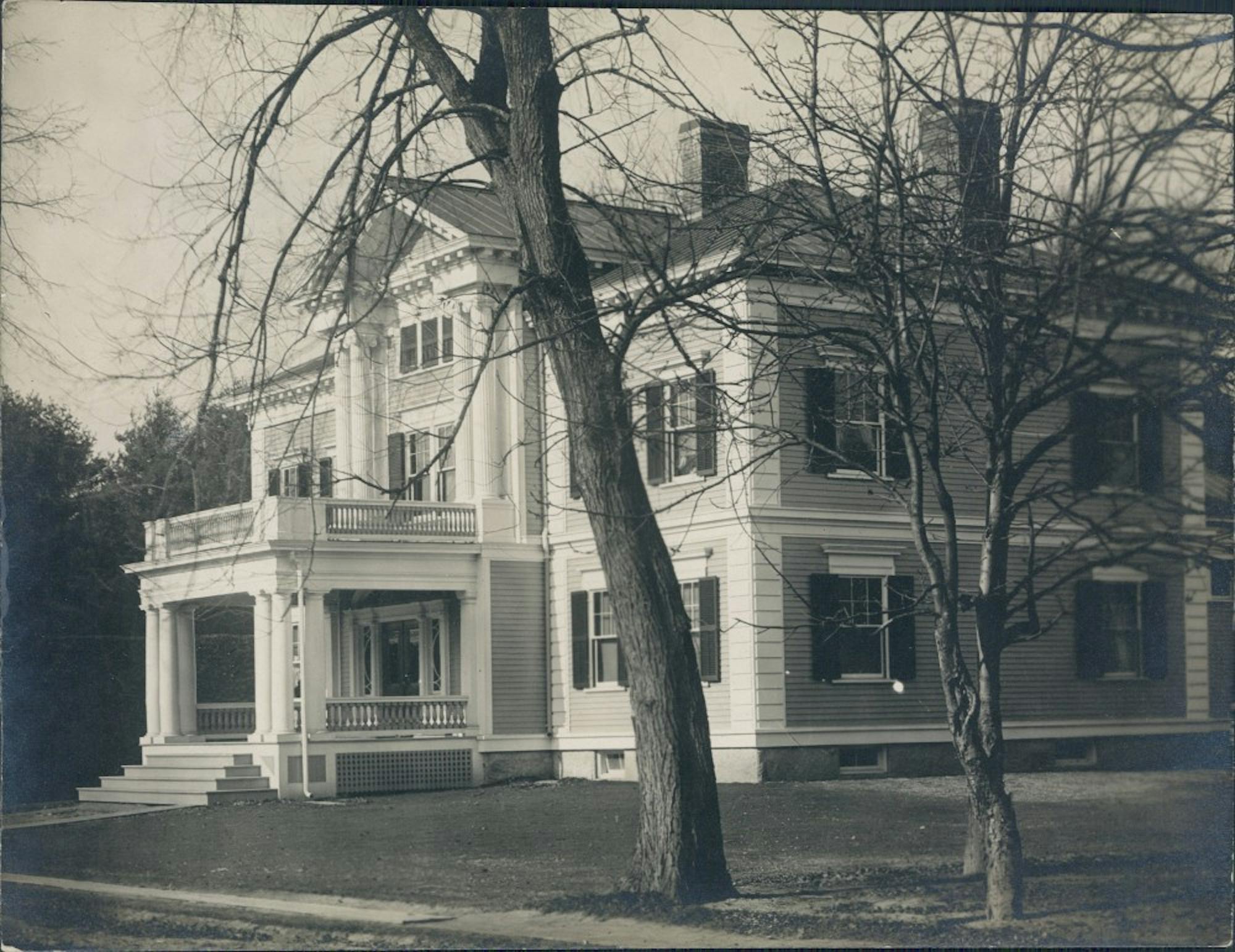While some of the fraternities at the College may fall under certain stereotypes, many fraternities have diversified their incoming classes to better encompass the College’s different strengths, from its sport teams to its student government. This is a vastly different outcome than the homogeneity that can result from block rushing — when a group of friends or teammates rush a single fraternity.
With Dartmouth’s male history, it is easy to think that block rushing traces back to times of black and white photographs. However, English professor James Dobson, who teaches English 55.12, “Dartmouth Fictions,” in which students analyze the College’s history through literature, explained that block rushing is a relatively recent phenomena. Dobson explained that people probably didn’t attribute major stereotypes to Greek organizations until sometime after World War II.
“Things pick up a bit more in the 1940s and 1950s and certainly by the time of Chris Miller [’63 Tu’64], you get a clear sense that fraternities have a character that can be ‘read’ by examining current members,” Dobson wrote in an email statement. “There also starts to be more depictions of rush as involving the concept of ‘fit’ in terms of the existing culture. I would think that this was all a prerequisite for a concept of ‘block rushing’ — otherwise there would be no recognizable change.”
Dobson’s point about “fit” seems to resonate with what current fraternity brothers have to say about rushing. However, just because the opportunity for block rushing exists at every fraternity doesn’t mean block rushing will always occur. Nowadays, some fraternities are maintaining a sustained effort to keep their fraternities diversified in sports and other extracurricular activities.
Benjamin Adler ’18, a brother of Beta Alpha Omega fraterity, thinks Beta is open-minded in evaluating prospective brothers.
“We’ve had a history of trying to select classes that pull from different places in campus, so it’s always had a strong contingency of varsity athletes, club athletes from lots of different teams, but those teams are varied,” Adler said. “We try and look at each person as an individual. For example, of the ’19’s class, we had like eight or nine track guys, but the year before I think there was two or three … That year, there was a lot of track guys who, on their own accord, wanted to rush the house and would be good fits.”
This variety isn’t limited to Beta. As Adler, a lightweight rower, recalls, for the Class of 2018, the lightweight rowers did not block rush Chi Gamma Epsilon fraternity, as was expected. According to Adler, lightweight rowers in the class of 2018 are spread across fraternities like Alpha Chi Alpha, Beta, Chi Gam and Sigma Alpha Epsilon — not to forget that there are also rowers who choose to be unaffiliated with the Greek system.
Adler remembers how he considered rushing Chi Gam, but knew he wanted something different and rushed Beta.
“I knew that I wanted a new outlet,” Adler said. “Rowing takes up a lot of time. I wanted to find a place where I can meet new people and get away from the sport when I needed to.”
Despite being in a different fraternity than most of the other lightweight rowers, Adler still feels welcome and comfortable in his team. As with many, if not all, organizations on campus, deciding to rush a certain house does not necessarily interfere with one’s relationships outside of Greek life. And such is the reason why breaking away from patterns of block rushing have occurred in present times without consequence.
Junfei Yu ’19, brother at Sigma Nu fraternity, also sees plenty of diversity in his fraternity. Even so, Yu further expands the concept of block rushing to recognize that there are advantages and disadvantages to the block rushing process.
“I think that personally, if I’m involved in a house where there are a bunch of athletes, and if I’m one of them, I would feel great because I’d be living with my teammates,” Yu said. “But if I’m in a house and everyone but me is from a certain team, then I’d feel a bit uncomfortable because I wouldn’t feel as close to everyone.”
To Yu, whether block rushing is beneficial depends on whether or not one is part of the group doing the block rush. Block rushing is not so much a crooked process as it is teammates building a supportive network. Most people who have been on a team understand the importance of sticking together and fostering close ties; Yu understands this from playing basketball in high school. Fraternities that center around a specific sport understand this too.
During the rush period, the concept of block rushing is not on all students’ minds as they decide which fraternity to rush. Rather, it simply occurs from the desire to connect with already well-established friendships. What Yu and Adler both agree on is that block rushing is not a controlling factor in the Greek system. When block rushes occur at Dartmouth, the relationships between each group member should not be ignored. It is a driving factor and not so different from why any student rushes a fraternity that houses familiar friends and acquaintances.
“I think at the end of the day, the decision of where you rush is something that is controlled far more by the people who are rushing and less by the systematic — if there are any systematic — norms or trends or histories,” Adler said.




